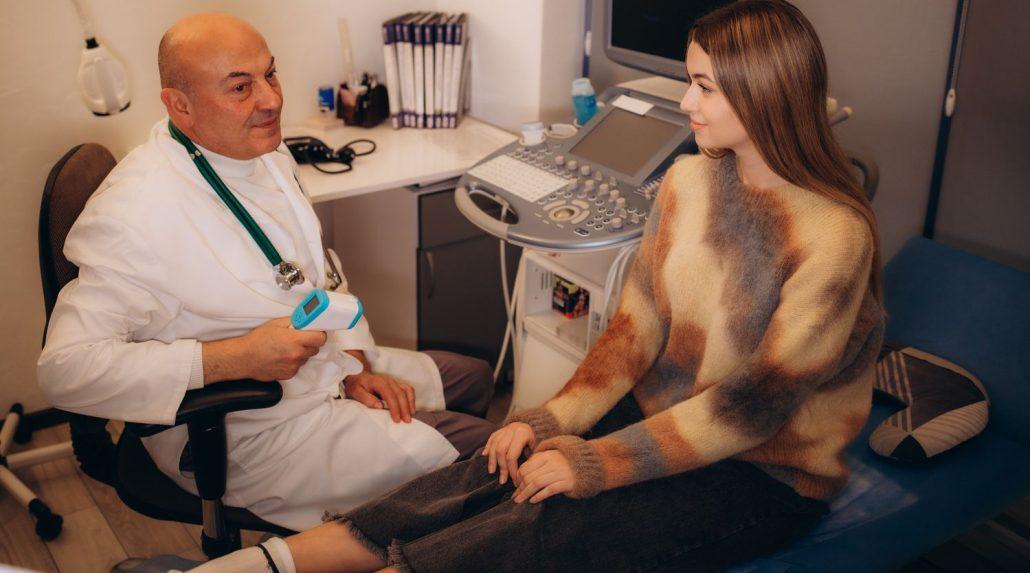- Nicholas DiBella
- Published: January 14, 2025
- Fact-checked by Dr. Desiree Granados

A hysterectomy can be a life-changing procedure, offering relief from chronic pain or serious medical conditions. However, it also comes with significant physical and hormonal changes that require proper management to ensure long-term well-being.
Hormone replacement therapy (HRT) is often a vital treatment method for women who have undergone a hysterectomy, helping restore hormonal balance.
About Hysterectomy
A hysterectomy is a surgical procedure to remove the uterus. Some common reasons for undergoing this procedure include:
- Uterine prolapse
- Endometriosis
- Abnormal uterine bleeding
- Dysmenorrhea (painful menses)
- Uterine fibroids causing severe symptoms
- Cancer of the uterus, cervix, or ovaries
The physical changes and symptoms following a hysterectomy depend on the specifics of the surgery. If you only had your uterus removed, then you will not enter menopause, since your ovaries will continue producing hormones. However, you might still experience menopause-like symptoms in the immediate recovery phase as your body adjusts.
If both your uterus and ovaries are removed (a procedure known as a bilateral salpingo-oophorectomy), you will experience surgical menopause. This abrupt hormonal change can cause intense symptoms such as hot flashes, mood swings, and vaginal dryness.
How Hormone Replacement Therapy Helps After Hysterectomy
A hysterectomy can have lasting effects for hormonal balance and overall health. If you had a hysterectomy and your ovaries were preserved, your body will still produce estrogen and progesterone. However, some women still report symptoms like hot flashes and mood changes post-surgery. These symptoms are often only temporary and may be the result of altered blood supply to the ovaries.
However, if your ovaries were removed during the hysterectomy procedure, this will cause a sudden loss of estrogen and trigger the beginning of menopause. The symptoms of surgical menopause can be more severe than natural menopause due to the abrupt onset.
Hormone replacement therapy (HRT) can help manage side effects by restoring hormonal balance. Benefits of HRT after hysterectomy include:
- Alleviating menopausal symptoms like hot flashes, night sweats, and vaginal dryness
- Protecting bone health by reducing the risk of osteoporosis
- Supporting cardiovascular health
- Improving mood and cognitive function

What Kind of HRT Should You Get After Hysterectomy?
The type of HRT recommended after a hysterectomy often depends on whether or not the ovaries were removed during the surgery and what kinds of symptoms you are experiencing.
- Estrogen-only HRT: This is the most common option for women who have had a hysterectomy. Without a uterus, you won’t need progesterone to protect against endometrial cancer. Estrogen-only HRT effectively relieves symptoms of menopause and supports long-term health.
- Combined HRT: If the ovaries are intact and producing some hormones, a combination of estrogen and progesterone might be recommended to address hormonal fluctuations.
A healthcare provider can help determine the best type and dosage of HRT based on your circumstances and medical history.
At The Sanctuary Wellness Institute, our doctors only prescribe bioidentical hormone replacement therapy, which uses hormones chemically identical to those produced by the body. We believe bioidentical hormone therapy yields the best results, since it enables us to tailor therapy to each patient’s specific needs.
Recovery Tips Post-Hysterectomy
Recovery after a hysterectomy involves physical and emotional adjustments. These tips can support a smoother recovery:
- Follow post-surgery care instructions: Avoid heavy lifting, intense physical activity, and sexual intercourse as advised by your doctor.
- Prioritize rest and hydration: Allow your body time to heal and stay hydrated to support overall recovery.
- Maintain a healthy diet: Focus on nutrient-rich foods to aid healing and boost energy levels.
- Engage in light physical activity: Once cleared by your doctor, gentle exercises like walking can improve circulation and prevent complications.
- Seek emotional support: Adjusting to life post-hysterectomy can be challenging. Consider joining a support group or seeking counseling to address emotional concerns.
- Discuss HRT with your doctor: Address any hormonal symptoms promptly and explore HRT options that suit your needs.
Conclusion
A hysterectomy is a significant medical procedure that requires thoughtful post-operative care to ensure long-term health and well-being. Hormone replacement therapy can play a vital role in managing the physical and hormonal changes that follow, particularly when tailored to individual needs. By understanding your options and adopting supportive recovery strategies, you can navigate this life transition with confidence and resilience.
How we reviewed this article:
- NHS (2022). Why it’s necessary
https://www.nhs.uk/conditions/hysterectomy/why-its-done/ - NHS (2022). Overview
https://www.nhs.uk/conditions/hysterectomy/ - Arthur F Haney, Robert A Wild (2007). Options for hormone therapy in women who have had a hysterectomy
https://pubmed.ncbi.nlm.nih.gov/17476150/
Current Version
January 14, 2025
Written By
Nick DiBella
Fact-checked By
Dr. Desiree Granados
Editorial Process
Our Editorial Process

Nicholas DiBella received his psychology degree from West Chester University of Pennsylvania and has been writing content for the Sanctuary Wellness Institute since 2023. He is passionate about all things health & wellness.







